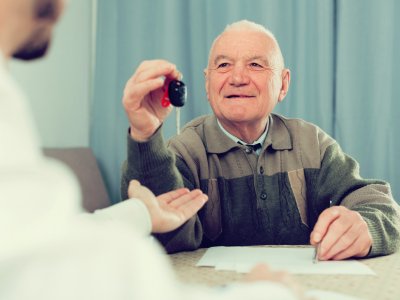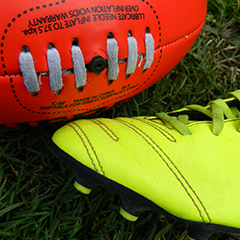
Researchers from The University of Queensland have developed an innovative program that prepares older Australians for life without a car.
Dr Theresa Scott, from UQ’s School of Psychology said the CarFreeMe program is designed to help seniors retire from driving and still maintain their community engagement and wellbeing.
“While older drivers are some of the safest and most experienced drivers, health conditions associated with ageing such as dementia can mean they are more at risk of accidents as their health declines,” Dr Scott said.
“Timing of the decision to stop driving is important for the best transition.
“When this time comes, it can be a drastic life change associated with many negative emotions, a decline in physical and mental wellbeing, and a potential increase in isolation.
“Therefore it needs to be a gradual process that includes planning for future transport arrangements, lifestyle changes, and the emotional adjustment to no longer having a car.”
The team that developed the CarFreeMe program consists of researchers from UQ’s School of Psychology, School of Health and Rehabilitation Sciences and Faculty of Medicine.
The program is a community-based education and support program that uses effective, research-based, client-centred methods to help older people manage driving cessation.
There are currently two versions of the CarFreeMe program with active trials; one for older adults without cognitive decline and one for older adults living with dementia.
A third, supporting people after traumatic injury, has been completed in Adelaide.
Occupational Therapist Dr Jacki Liddle from UQ’s School of Health and Rehabilitation Sciences led the development of CarFreeMe.
“CarFreeMe is unique in that it supports both the practical and emotional changes related to stopping driving,” Dr Liddle said.
“It’s based on what people who have experienced driving cessation said that they needed to adjust, stay active and engaged.”
The UQ researchers are currently delivering the CarFreeMe program to people living with dementia through face-to-face delivery and via telehealth technology enabled by UQ’s Telerehabilitation Clinic.
“We conducted a pilot telehealth trial with retirement village residents from Aveo Durack that was very well received,” Dr Scott said.
“The residents felt comfortable with the telehealth technology and were able to build a rapport and communicate with telehealth health professionals.
“We also had a number of residents provide positive feedback after the trial, including one resident who said they had increased confidence in getting out and about in the community now they had ceased driving.
“Other positive feedback from participants included they felt like they owned their decision to stop and they still felt like they had the freedom to go wherever they wanted to go.
“This was the first step to rolling out the telehealth technology to older people who are planning to cease driving in metropolitan, rural and remote areas.
“The technology allows for accessible healthcare to be brought to the homes of older people, without the added challenges of finding alternative means of transport to access services.”
The pilot study with Aveo Durack was facilitated by UQ Health Care who manage the Durack Medical Centre which is part of an 'Enhanced Living Program' suite of services that promote healthy lifestyles to residents.
The researchers are looking for older adults without cognitive decline or older adults with dementia to take part in the current trials.
For more information interested participants can email Dr Theresa Scott at theresa.scott@uq.edu.au.



